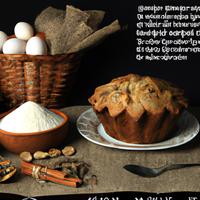
1 serving (113 grams) contains 470 calories, 6.0 grams of protein, 19.0 grams of fat, and 68.0 grams of carbohydrates.

Log this food in SnapCalorie

Nutrition Information
Calories |
979.2 | ||
|---|---|---|---|
% Daily Value* |
|||
| Total Fat | 39.6 g | 50% | |
| Saturated Fat | 8.3 g | 41% | |
| Polyunsaturated Fat | 0 g | ||
| Cholesterol | 114.6 mg | 38% | |
| Sodium | 750.0 mg | 32% | |
| Total Carbohydrates | 141.7 g | 51% | |
| Dietary Fiber | 2.1 g | 7% | |
| Sugars | 77.1 g | ||
| protein | 12.5 g | 25% | |
| Vitamin D | 0 mcg | 0% | |
| Calcium | 41.7 mg | 3% | |
| Iron | 4.2 mg | 23% | |
| Potassium | 250 mg | 5% | |
* Percent Daily Values are based on a 2,000 calorie diet. Your daily values may be higher or lower depending on your calorie needs.
Food Attributes
Source of Calories
About Large muffin
A large muffin is a popular baked treat often enjoyed as a breakfast item or snack. Originating from Western cuisine, this pastry is typically soft, moist, and rich in flavor, with variations ranging from sweet to savory. Common ingredients include flour, sugar, eggs, butter or oil, and baking powder, with flavorful additions such as fruits, nuts, chocolate chips, or spices like cinnamon. While muffins can provide energy from carbohydrates and some nutrients from added fruits or nuts, they are often high in sugar and refined fats, particularly in larger, commercially-prepared versions. Homemade or whole-grain muffins can offer healthier alternatives by incorporating less sugar, whole wheat flour, and nutrient-dense ingredients like oats or flaxseed. Moderation and mindful ingredient choices can make muffins a delightful occasional indulgence while maintaining a balanced diet.



